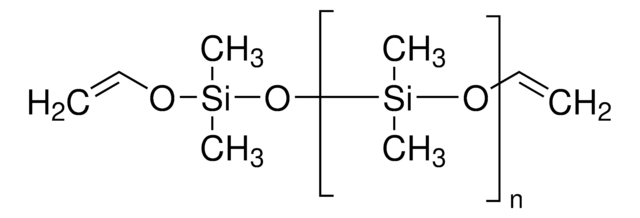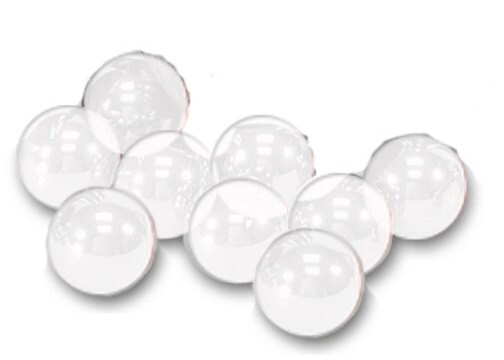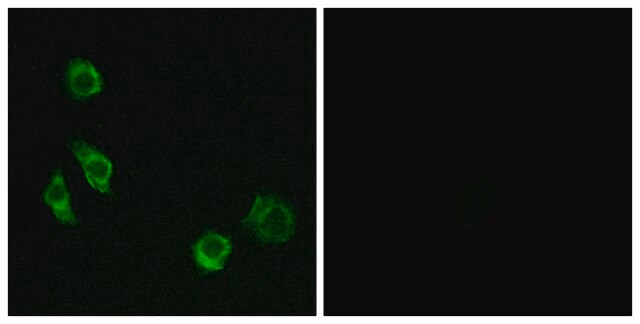ZRB2176
Anti-MZB1 Antibody, clone 1J15 ZooMAb® Rabbit Monoclonal

recombinant, expressed in HEK 293 cells
Synonym(s):
Marginal zone B- and B1-cell-specific protein;Mesenteric estrogen-dependent adipose 7;MEDA-7;Plasma cell-induced resident endoplasmic reticulum protein;Plasma cell-induced resident ER protein;pERp1;Proapoptotic caspase adapter protein
About This Item
IHC
WB
affinity binding assay
immunocytochemistry: suitable
immunohistochemistry: suitable
western blot: suitable
Recommended Products
biological source
rabbit
Quality Level
recombinant
expressed in HEK 293 cells
conjugate
unconjugated
antibody form
purified antibody
antibody product type
primary antibodies
clone
1J15, recombinant monoclonal
description
1J15 Clone
product line
ZooMAb® learn more
form
lyophilized
mol wt
calculated mol wt 20.69 kDa
observed mol wt ~18 kDa
purified by
using Protein A
species reactivity
human
packaging
antibody small pack of 25 μL
greener alternative product characteristics
Waste Prevention
Designing Safer Chemicals
Design for Energy Efficiency
Learn more about the Principles of Green Chemistry.
enhanced validation
recombinant expression
Learn more about Antibody Enhanced Validation
sustainability
Greener Alternative Product
technique(s)
affinity binding assay: suitable
immunocytochemistry: suitable
immunohistochemistry: suitable
western blot: suitable
isotype
IgG
epitope sequence
Unknown
Protein ID accession no.
UniProt accession no.
greener alternative category
shipped in
ambient
storage temp.
2-8°C
target post-translational modification
unmodified
Gene Information
human ... MZB1(51237)
General description
Specificity
Immunogen
Application
Evaluated by Western Blotting in Daudi cell lysate.
Western Blotting Analysis: A 1:1,000 dilution of this antibody detected MZB1 in Daudi cell lysate.
Tested Applications
Western Blotting Analysis: A 1:1,000 dilution from a representative lot detected MZB1 in Raji, Ramos, PBMC, HEK293T, and HeLa cell lysates.
Immunohistochemistry (Paraffin) Analysis: A 1:1,000 dilution from a representative lot detected MZB1 in human tonsil tissue sections.
Immunocytochemistry Analysis: A 1:1,000 dilution from a representative lot detected MZB1 in Raji cells.
Affinity Binding Assay: A representative lot of this antibody bound recombinant human MZB1 protein with a KD of 1.7 x 10-7 in an affinity binding assay.
Note: Actual optimal working dilutions must be determined by end user as specimens, and experimental conditions may vary with the end user
Target description
Physical form
Reconstitution
Storage and Stability
Legal Information
Disclaimer
Not finding the right product?
Try our Product Selector Tool.
Storage Class Code
11 - Combustible Solids
WGK
WGK 1
Flash Point(F)
Not applicable
Flash Point(C)
Not applicable
Choose from one of the most recent versions:
Certificates of Analysis (COA)
Sorry, we don't have COAs for this product available online at this time.
If you need assistance, please contact Customer Support.
Already Own This Product?
Find documentation for the products that you have recently purchased in the Document Library.
Our team of scientists has experience in all areas of research including Life Science, Material Science, Chemical Synthesis, Chromatography, Analytical and many others.
Contact Technical Service







